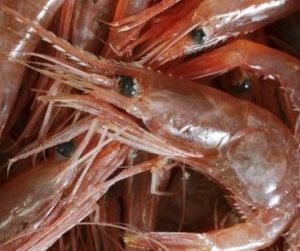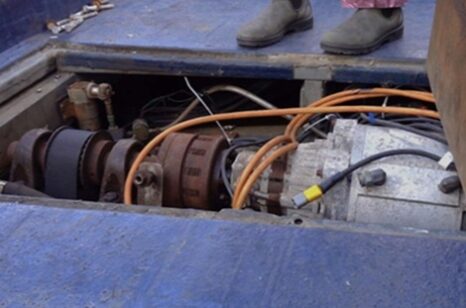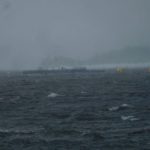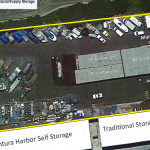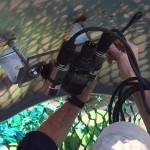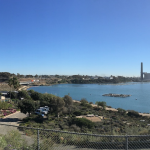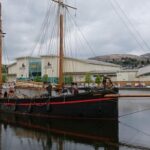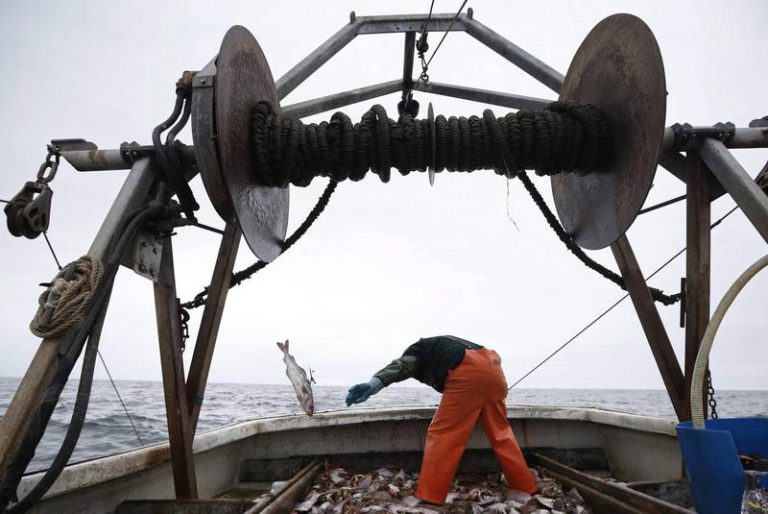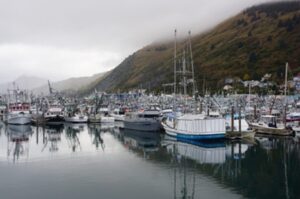 Canada’s top chefs should offer seal meat on their menus as part of the battle against Russian propaganda as well as celebrities who have spoken out against the seal hunt, a senate committee heard. At the same hearing, independent Senator Bev Busson suggested mega-singing star Taylor Swift might be used to convince young people to chow down on seal. But animal rights activists say claims that Russian propaganda is behind the problems of Canada’s seal industry is a bizarre conspiracy theory. Instead, they point to the ban by 35 nations on commercial seal products as the real reason the industry has declined. The ban, however, hasn’t stopped some from looking for new ways to revive the commercial seal industry. more. >>click to read<< 11:33
Canada’s top chefs should offer seal meat on their menus as part of the battle against Russian propaganda as well as celebrities who have spoken out against the seal hunt, a senate committee heard. At the same hearing, independent Senator Bev Busson suggested mega-singing star Taylor Swift might be used to convince young people to chow down on seal. But animal rights activists say claims that Russian propaganda is behind the problems of Canada’s seal industry is a bizarre conspiracy theory. Instead, they point to the ban by 35 nations on commercial seal products as the real reason the industry has declined. The ban, however, hasn’t stopped some from looking for new ways to revive the commercial seal industry. more. >>click to read<< 11:33
Tag Archives: canada
Lobster fishermen say tiny change in legal sizes could disrupt imperiled industry
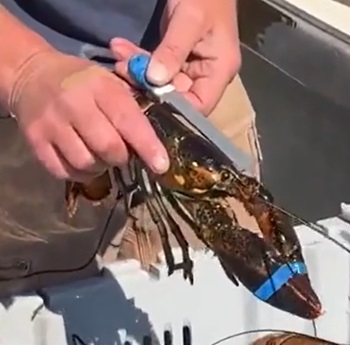 Gerry Cushman has seen Maine’s iconic lobster industry survive numerous threats in his three decades on the water, but the latest challenge, which might sound tiny, could be the biggest one yet. Lobster fishing is a game of inches, and the number of inches is about to change. Fishing regulators are instituting a new rule that lobster fishermen must abide by stricter minimum sizes for crustaceans they harvest. In addition to causing a dispute between fishermen and regulators, the change has led to confusion about the ramifications for international trade in one of the world’s most popular seafoods. “We don’t need any more, really, on our plate. It’s just a lot going on, one fight after another,” Cushman, 55, a boat captain who fishes out of Port Clyde, said. “We don’t need anything in the marketplace to lower the price of lobsters.” more, >>CLICK TO READ<< 09:59
Gerry Cushman has seen Maine’s iconic lobster industry survive numerous threats in his three decades on the water, but the latest challenge, which might sound tiny, could be the biggest one yet. Lobster fishing is a game of inches, and the number of inches is about to change. Fishing regulators are instituting a new rule that lobster fishermen must abide by stricter minimum sizes for crustaceans they harvest. In addition to causing a dispute between fishermen and regulators, the change has led to confusion about the ramifications for international trade in one of the world’s most popular seafoods. “We don’t need any more, really, on our plate. It’s just a lot going on, one fight after another,” Cushman, 55, a boat captain who fishes out of Port Clyde, said. “We don’t need anything in the marketplace to lower the price of lobsters.” more, >>CLICK TO READ<< 09:59
A fishing conglomerate created a fake company to facilitate a merger. It could now be on the hook for billions of dollars.
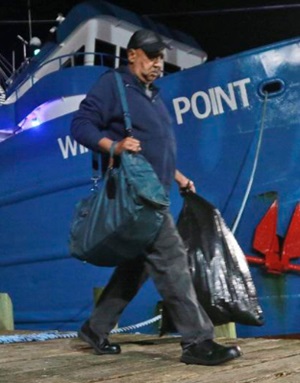 Commercial fishers are one of the professions that’s been nickeled-and-dimed in recent decades, right up there with long-haul truckers and chicken farmers. In New Bedford, Massachusetts, the most lucrative port for seafood catches in the country, a fisherman profiled by ProPublica in 2022 was forced to contract with one of the world’s seafood powerhouses, Blue Harvest, because it had become the only buyer in the local market. Per the contract, fishers have to lease fishing permits from the company; the costs for vessel maintenance, fuel, gear, and repairs on company-owned boats are taken out from fishers’ own paychecks, called settlement sheets. After fishing around the clock for ten days to meet quotas, Jerry Leeman only made 14 cents on the pound and his crew 7 cents, even as their haddock catch sold for $2.28 per pound at market. Blue Harvest took the lion’s share of earnings, while placing all the risks of the trade onto fishers. “Tell me how I can catch 50,000 pounds of fish yet I don’t know what my kids are going to have for dinner,” more, >>CLICK TO READ<< 07:59
Commercial fishers are one of the professions that’s been nickeled-and-dimed in recent decades, right up there with long-haul truckers and chicken farmers. In New Bedford, Massachusetts, the most lucrative port for seafood catches in the country, a fisherman profiled by ProPublica in 2022 was forced to contract with one of the world’s seafood powerhouses, Blue Harvest, because it had become the only buyer in the local market. Per the contract, fishers have to lease fishing permits from the company; the costs for vessel maintenance, fuel, gear, and repairs on company-owned boats are taken out from fishers’ own paychecks, called settlement sheets. After fishing around the clock for ten days to meet quotas, Jerry Leeman only made 14 cents on the pound and his crew 7 cents, even as their haddock catch sold for $2.28 per pound at market. Blue Harvest took the lion’s share of earnings, while placing all the risks of the trade onto fishers. “Tell me how I can catch 50,000 pounds of fish yet I don’t know what my kids are going to have for dinner,” more, >>CLICK TO READ<< 07:59
Maine Lobstermen’s Association letter to ASMFC reiterates its call to delay any gauge increase
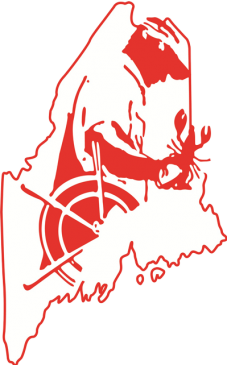 Dear Ms. Starks: The Maine Lobstermen’s Association (MLA) strongly supports the Atlantic States Marine Fisheries Commission’s (ASMFC) recommendation to NOAA Fisheries proposed in Addendum XXX “that as changes to the minimum gauge size in LCMA 1 are required by Addendum XXVII, the smallest minimum size for foreign imports would match the smallest minimum size in effect for the US industry.” MLA has raised concern with ASMFC through previous comments and letters that the lack of clarity in Addendum XXVII regarding the import of undersize lobster from Canada smaller than the minimum possession size has created significant confusion and angst amongst Maine lobstermen who worry that the import these lobsters would have a significant negative impact on the U.S. boat price. more, >>CLICK TO READ<< 14:06
Dear Ms. Starks: The Maine Lobstermen’s Association (MLA) strongly supports the Atlantic States Marine Fisheries Commission’s (ASMFC) recommendation to NOAA Fisheries proposed in Addendum XXX “that as changes to the minimum gauge size in LCMA 1 are required by Addendum XXVII, the smallest minimum size for foreign imports would match the smallest minimum size in effect for the US industry.” MLA has raised concern with ASMFC through previous comments and letters that the lack of clarity in Addendum XXVII regarding the import of undersize lobster from Canada smaller than the minimum possession size has created significant confusion and angst amongst Maine lobstermen who worry that the import these lobsters would have a significant negative impact on the U.S. boat price. more, >>CLICK TO READ<< 14:06
Storm Brewing over French Halibut Fishery in Atlantic Canada
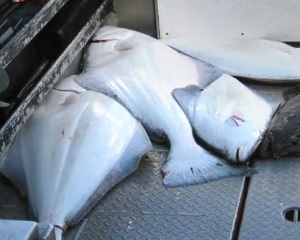 The Canadian halibut industry is accusing France of seeking an exorbitant share of the fishery in negotiations with Canada on quotas for the valuable groundfish that migrate across the jurisdictions of both countries. Canadian fishermen from Nova Scotia to Nunavut would be the losers if France prevails, said Bruce Chapman, executive director of the Atlantic Halibut Council, representing both inshore and offshore Canadian harvesters. French territorial waters extend into the Atlantic from the islands of Saint Pierre and Miquelon, 25 kilometres from the southern coast of Newfoundland and Labrador. more, >>CLICK TO READ<< 06:41
The Canadian halibut industry is accusing France of seeking an exorbitant share of the fishery in negotiations with Canada on quotas for the valuable groundfish that migrate across the jurisdictions of both countries. Canadian fishermen from Nova Scotia to Nunavut would be the losers if France prevails, said Bruce Chapman, executive director of the Atlantic Halibut Council, representing both inshore and offshore Canadian harvesters. French territorial waters extend into the Atlantic from the islands of Saint Pierre and Miquelon, 25 kilometres from the southern coast of Newfoundland and Labrador. more, >>CLICK TO READ<< 06:41
First Nations advocates resolve to put traditional fishing rights under international spotlight
 First Nations delegates from Japan, Taiwan, Canada, Alaska, and Australia have met on the lands of Walbunga Yuin people on the NSW far south coast for the International Indigenous Fishing Symposium. Indigenous fishing rights activists in NSW are working with First Nations groups around the world to put a global spotlight on the battle to protect traditional fishing rights and cultural practices. The groups plan to work together to lobby the United Nations. more, >>CLICK TO READ<< 07:56
First Nations delegates from Japan, Taiwan, Canada, Alaska, and Australia have met on the lands of Walbunga Yuin people on the NSW far south coast for the International Indigenous Fishing Symposium. Indigenous fishing rights activists in NSW are working with First Nations groups around the world to put a global spotlight on the battle to protect traditional fishing rights and cultural practices. The groups plan to work together to lobby the United Nations. more, >>CLICK TO READ<< 07:56
A Historic Agreement – Canada and U.S. suspend all fishing for Canadian-origin Yukon River chinook salmon
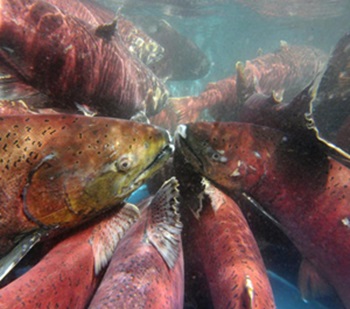 Canada and the United States are suspending all fishing for Canadian-origin Yukon River chinook salmon for seven years in an attempt to protect the dwindling species. The agreement covers the length of one life cycle of the fish and recognizes that the “persistent decline of chinook salmon” has led to an inability to meet conservation objectives in both countries. more, >>CLICK TO READ<< – Canada and Alaska sign a historic agreement to protect Yukon River Chinook salmon, To ensure the protection and recovery of Yukon River Chinook salmon, Fisheries and Oceans Canada and the Alaska Department of Fish and Game have signed a historic seven-year agreement. more, >>Click to read<< 10:33
Canada and the United States are suspending all fishing for Canadian-origin Yukon River chinook salmon for seven years in an attempt to protect the dwindling species. The agreement covers the length of one life cycle of the fish and recognizes that the “persistent decline of chinook salmon” has led to an inability to meet conservation objectives in both countries. more, >>CLICK TO READ<< – Canada and Alaska sign a historic agreement to protect Yukon River Chinook salmon, To ensure the protection and recovery of Yukon River Chinook salmon, Fisheries and Oceans Canada and the Alaska Department of Fish and Game have signed a historic seven-year agreement. more, >>Click to read<< 10:33
What Canada can learn from Maine’s approach to the lucrative baby eel fishery
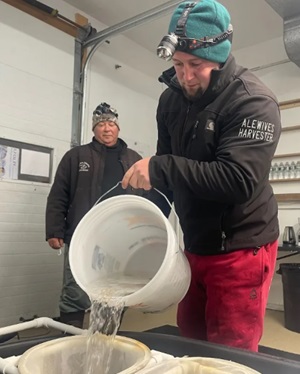 Authorities in Maine say they have figured out how to regulate a fishery that is so out of control in Canada, the federal government has shut it down this year — the third shutdown in five years — putting 1,100 people out of work. Baby eels, also known as elvers or glass eels, are generally fished in rivers and streams in Maine, Nova Scotia, New Brunswick and a handful of Caribbean islands. They’re shipped live to Asia, where they’re grown to maturity and eaten — the dish is so popular it led to overfishing in Japan and Europe, leaving seafood wholesalers looking to Canada. Photos, more, >>CLICK TO READ<< 10:07
Authorities in Maine say they have figured out how to regulate a fishery that is so out of control in Canada, the federal government has shut it down this year — the third shutdown in five years — putting 1,100 people out of work. Baby eels, also known as elvers or glass eels, are generally fished in rivers and streams in Maine, Nova Scotia, New Brunswick and a handful of Caribbean islands. They’re shipped live to Asia, where they’re grown to maturity and eaten — the dish is so popular it led to overfishing in Japan and Europe, leaving seafood wholesalers looking to Canada. Photos, more, >>CLICK TO READ<< 10:07
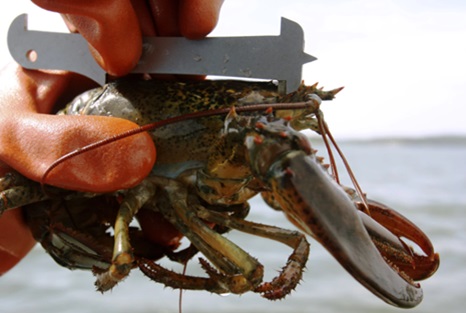
Fishermen call for a delay to upcoming lobster size rules
Congressman Jared Golden is calling on fishery regulators to delay upcoming rules that will change the minimum catch sizes for lobster in certain parts of Maine. Officials have said the changes are necessary after they observed a troubling decline in the juvenile lobster population over a three-year period. The new management measures are intended to allow sublegal lobsters to reproduce before being harvested. But some Maine fishermen are questioning that data, and on Tuesday, many turned out at a meeting of the Atlantic States Marine Fisheries Commission to express their concerns. more, >>CLICK TO READ<< 05:50
Canada opens personal-use mackerel bait fishery, extends commercial moratorium
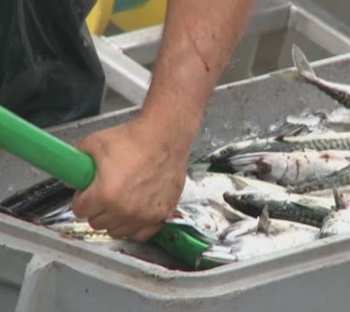 Canada is opening a personal-use bait fishery for mackerel this spring while extending the moratorium on commercial mackerel fishing in Atlantic Canada and Quebec in 2024. Fish caught under a bait licence are intended for personal-use and cannot be sold, traded or bartered. The Department of Fisheries and Oceans said in a news release Thursday the bait fishery will help licence holders supply their other fisheries, such lobster, with bait without jeopardizing the ongoing rebuilding of the stock. The 470-tonne bait quota will be released in two parts to allow fishermen in different parts of the region equitable access. Mackerel arrive in different parts of the region at different times — first off southern Nova Scotia and later in Newfoundland and Labrador. more, >>CLICK TO READ<< 14:42
Canada is opening a personal-use bait fishery for mackerel this spring while extending the moratorium on commercial mackerel fishing in Atlantic Canada and Quebec in 2024. Fish caught under a bait licence are intended for personal-use and cannot be sold, traded or bartered. The Department of Fisheries and Oceans said in a news release Thursday the bait fishery will help licence holders supply their other fisheries, such lobster, with bait without jeopardizing the ongoing rebuilding of the stock. The 470-tonne bait quota will be released in two parts to allow fishermen in different parts of the region equitable access. Mackerel arrive in different parts of the region at different times — first off southern Nova Scotia and later in Newfoundland and Labrador. more, >>CLICK TO READ<< 14:42
Predators take big bite out of declining Atlantic mackerel population
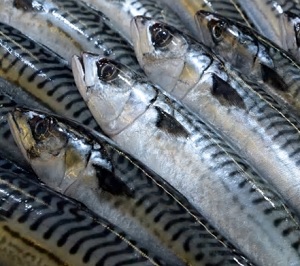 Predators ate at least twice as many Atlantic mackerel as commercial fishery landings in the decade leading up to Canada’s region-wide moratorium, according to new research by Canadian and American scientists. The study also found seals are a major predator, lending credence to what many fishermen have long claimed. The modelling study was published this month by the federal Fisheries Department and the Canadian Science Advisory Secretariat. The top predators were gannets, grey seals, dogfish and bluefin tuna. In the most conservative estimate, predators removed between 21,000 and 29,000 tonnes annually between 2012 and 2021 — at least two times greater than Canadian commercial landings reported as 11,000 tonnes per year. more, >>CLICK TO READ<< 12:26
Predators ate at least twice as many Atlantic mackerel as commercial fishery landings in the decade leading up to Canada’s region-wide moratorium, according to new research by Canadian and American scientists. The study also found seals are a major predator, lending credence to what many fishermen have long claimed. The modelling study was published this month by the federal Fisheries Department and the Canadian Science Advisory Secretariat. The top predators were gannets, grey seals, dogfish and bluefin tuna. In the most conservative estimate, predators removed between 21,000 and 29,000 tonnes annually between 2012 and 2021 — at least two times greater than Canadian commercial landings reported as 11,000 tonnes per year. more, >>CLICK TO READ<< 12:26
Yukon River Panel hears fishing moratorium on Yukon River chinook may be ‘too little, too late’
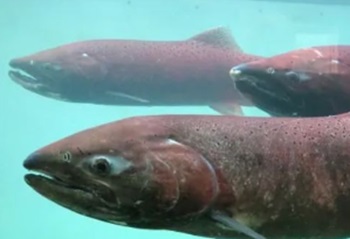 A new international agreement on chinook salmon stoked at times emotional debate at the Yukon River Panel meeting in Anchorage, Alaska, this week, and while many appeared to approve of the pact, others seemed to cast doubts. Duane Aucoin, a member of the Teslin Tlingit Council in the Yukon, said it’s taken the collapse of the chinook population to finally do something, but the natural world doesn’t work that way. “One thing we’re afraid of is, is this too little, too late?” he said. “Western policies, Western politics, Western science is what helped get us into this crisis, into this mess. Traditional knowledge will help get us out.” Photos, more, >>click to read<< 08:02
A new international agreement on chinook salmon stoked at times emotional debate at the Yukon River Panel meeting in Anchorage, Alaska, this week, and while many appeared to approve of the pact, others seemed to cast doubts. Duane Aucoin, a member of the Teslin Tlingit Council in the Yukon, said it’s taken the collapse of the chinook population to finally do something, but the natural world doesn’t work that way. “One thing we’re afraid of is, is this too little, too late?” he said. “Western policies, Western politics, Western science is what helped get us into this crisis, into this mess. Traditional knowledge will help get us out.” Photos, more, >>click to read<< 08:02
Canada, Alaska suspend fishing of Yukon River chinook salmon for 7 years
 In a bid to help the recovery of the Yukon River chinook salmon run, the federal government and the State of Alaska have agreed to implement a seven-year moratorium on fishing the species. The suspension, in effect for one full life cycle of a salmon, includes commercial fishing and recreational angling in the Yukon River mainstem and its Canadian tributaries. Representatives from Fisheries and Oceans Canada and the Alaska Department of Fish and Game signed the agreement on Monday. The number of chinook salmon crossing the international border into Canadian waters has for years plummeted, with the last two years yielding some of the worst tallies recorded on the Yukon River. more, >>click to read<< 09:06
In a bid to help the recovery of the Yukon River chinook salmon run, the federal government and the State of Alaska have agreed to implement a seven-year moratorium on fishing the species. The suspension, in effect for one full life cycle of a salmon, includes commercial fishing and recreational angling in the Yukon River mainstem and its Canadian tributaries. Representatives from Fisheries and Oceans Canada and the Alaska Department of Fish and Game signed the agreement on Monday. The number of chinook salmon crossing the international border into Canadian waters has for years plummeted, with the last two years yielding some of the worst tallies recorded on the Yukon River. more, >>click to read<< 09:06
Scallop wallop – Japanese imports are taking a bite out of New Bedford’s lucrative seafood industry at a time when the region’s shellfish are in shorter supply.
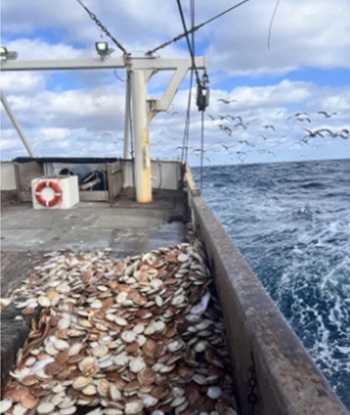 Rahm Emanuel, the U.S. ambassador to Japan, landed a deal to supply U.S. military bases in Japan with scallops and other Japanese seafood products. Japan is an ally, he said, and it is important to support one of their major industries in a challenging moment. “In America we have a saying about being a good neighbor,” Emanuel said, according to the military news service Stars and Stripes. “This is being a good neighbor.” The recent spike in Japanese scallop imports is a complex political tangle. But in the U.S. seafood trade, distributors aren’t buying Japanese scallops to be neighborly, as Emanuel put it. “It’s business,” said Drew Minkiewicz, a D.C. attorney who represents commercial fishing and shipping interests. “Japan’s government is making a targeted effort to push as many scallops as they can into the U.S. That competes directly with our scallops here.” more, >>click to read<< 12:36
Rahm Emanuel, the U.S. ambassador to Japan, landed a deal to supply U.S. military bases in Japan with scallops and other Japanese seafood products. Japan is an ally, he said, and it is important to support one of their major industries in a challenging moment. “In America we have a saying about being a good neighbor,” Emanuel said, according to the military news service Stars and Stripes. “This is being a good neighbor.” The recent spike in Japanese scallop imports is a complex political tangle. But in the U.S. seafood trade, distributors aren’t buying Japanese scallops to be neighborly, as Emanuel put it. “It’s business,” said Drew Minkiewicz, a D.C. attorney who represents commercial fishing and shipping interests. “Japan’s government is making a targeted effort to push as many scallops as they can into the U.S. That competes directly with our scallops here.” more, >>click to read<< 12:36
Seal oil is the best source of omega-3 and other facts about Canada’s misunderstood seal harvest
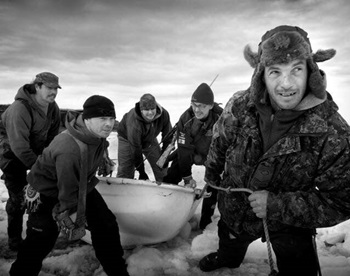 Contrary to narratives spun by anti-sealing groups for decades, this practice is a testament to resilience and a crucial pillar of sustainability and economic survival. Despite numerous fear factors, some substantiated and others frivolous, coastal communities still rely on and support the responsible harvest of seals. For coastal Canadians, the ocean has been and continues to be a source of food, economic activity, recreation, and livelihood. Let’s follow the facts trail: The seal harvest uses techniques designed by a panel of international expert veterinarians. Seals eat 53 times more fish yearly than the entire Eastern Canadian fishing fleet catches. Government scientists have stated that seal predation is preventing the rebuilding of five fish species listed under the Species at Risk Act. >> click to read <<14:52
Contrary to narratives spun by anti-sealing groups for decades, this practice is a testament to resilience and a crucial pillar of sustainability and economic survival. Despite numerous fear factors, some substantiated and others frivolous, coastal communities still rely on and support the responsible harvest of seals. For coastal Canadians, the ocean has been and continues to be a source of food, economic activity, recreation, and livelihood. Let’s follow the facts trail: The seal harvest uses techniques designed by a panel of international expert veterinarians. Seals eat 53 times more fish yearly than the entire Eastern Canadian fishing fleet catches. Government scientists have stated that seal predation is preventing the rebuilding of five fish species listed under the Species at Risk Act. >> click to read <<14:52
Want to own the Freshwater Fish Marketing Corporation?
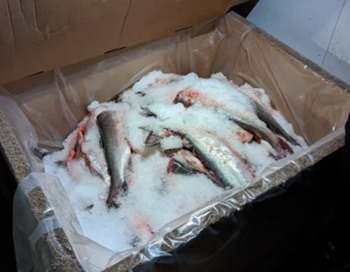 The federal government is asking for anyone “interested in ownership and governance of” the Freshwater Fish Marketing Corporation to get in touch. The FFMC is currently a Crown corporation. In the NWT, the FFMC has the sole right to acquire fish and sell it elsewhere in Canada and globally, meaning it holds a monopoly on fish exports from the territory. The federal government has previously announced plans to overhaul the corporation due in part to concerns from fishers that FFMC has not always acted in their best interests or secured the best prices. A 2021 review recommended turning FFMC into a corporation run by the fishers it represents. more, >>click to read<< 16:31
The federal government is asking for anyone “interested in ownership and governance of” the Freshwater Fish Marketing Corporation to get in touch. The FFMC is currently a Crown corporation. In the NWT, the FFMC has the sole right to acquire fish and sell it elsewhere in Canada and globally, meaning it holds a monopoly on fish exports from the territory. The federal government has previously announced plans to overhaul the corporation due in part to concerns from fishers that FFMC has not always acted in their best interests or secured the best prices. A 2021 review recommended turning FFMC into a corporation run by the fishers it represents. more, >>click to read<< 16:31
U.S. Customs and Border Patrol wins one against American fish-shipping companies for violating antiquated Jones Act
 Two seafood shipping companies have settled a lawsuit challenging penalties and fines levied by U.S. Customs and Border Protection for violating the Jones Act, a more than 100-year old law requiring merchandise be transported by U.S. flagged vessels between U.S. ports. An exception to the U.S. flagged vessel requirement allows seafood from Alaska to be transported to the mainland U.S. if it travels via Canadian rail. The companies challenged the penalties and fines in the U.S. District Court of Alaska, saying they did not violate the Jones Act while transporting seafood from Alaska to the mainland U.S. because it was “transported” by Canadian rail.A settlement agreement was finalized between the companies and the U.S. in January. The agreement requires KIF and ARM to pay $9.5 million to the U.S. The companies also stopped using the BCR to transport seafood to the U.S. after this ruling. more, >>click to read<< 13:07
Two seafood shipping companies have settled a lawsuit challenging penalties and fines levied by U.S. Customs and Border Protection for violating the Jones Act, a more than 100-year old law requiring merchandise be transported by U.S. flagged vessels between U.S. ports. An exception to the U.S. flagged vessel requirement allows seafood from Alaska to be transported to the mainland U.S. if it travels via Canadian rail. The companies challenged the penalties and fines in the U.S. District Court of Alaska, saying they did not violate the Jones Act while transporting seafood from Alaska to the mainland U.S. because it was “transported” by Canadian rail.A settlement agreement was finalized between the companies and the U.S. in January. The agreement requires KIF and ARM to pay $9.5 million to the U.S. The companies also stopped using the BCR to transport seafood to the U.S. after this ruling. more, >>click to read<< 13:07
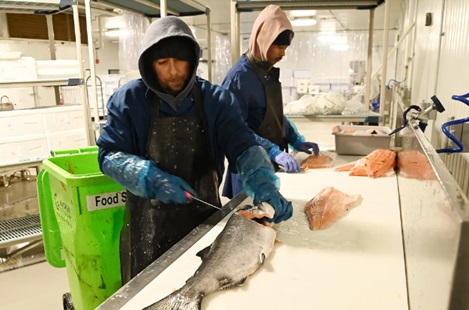
Fish skin, scales touted as future economic boon for Mich., Great Lakes
The fillets that depart Motor City Seafood Co. are tidy, ready to be packaged, shipped and prepared fresh at a Metro Detroit kitchen. They don’t start that way. The Highland Park seafood distributor mostly imports whole fish. Workers fillet them by hand or send them through a system of machines that remove the scales, heads, organs and bones before they are skinned and packed away. Motor City Seafood is left with packages of carefully cut fillets and a big green bucket of the rest — skin, scales, heads, guts. While unsightly when piled in the bucket, those offcuts could be a wellspring for the region’s commercial fish industry. more, >>click to read<< 07:14
Can Taylor Swift help Canada’s seal meat industry, senate committee asks
 Canada’s top chefs should offer seal meat on their menus as part of the battle against Russian propaganda as well as celebrities who have spoken out against the seal hunt, a senate committee heard. At the same hearing, independent Senator Bev Busson suggested mega-singing star Taylor Swift might be used to convince young people to chow down on seal. But animal rights activists say claims that Russian propaganda is behind the problems of Canada’s seal industry is a bizarre conspiracy theory. Instead, they point to the ban by 35 nations on commercial seal products as the real reason the industry has declined. The ban, however, hasn’t stopped some from looking for new ways to revive the commercial seal industry. more. >>click to read<< 11:33
Canada’s top chefs should offer seal meat on their menus as part of the battle against Russian propaganda as well as celebrities who have spoken out against the seal hunt, a senate committee heard. At the same hearing, independent Senator Bev Busson suggested mega-singing star Taylor Swift might be used to convince young people to chow down on seal. But animal rights activists say claims that Russian propaganda is behind the problems of Canada’s seal industry is a bizarre conspiracy theory. Instead, they point to the ban by 35 nations on commercial seal products as the real reason the industry has declined. The ban, however, hasn’t stopped some from looking for new ways to revive the commercial seal industry. more. >>click to read<< 11:33
Wide-ranging meeting covers gauge changes, ropeless gear, damage repair – DMR to lobstermen: We need your data
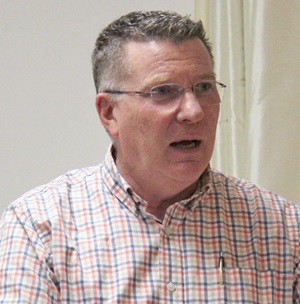 The Maine Department of Marine Fisheries held its January 29 Lobster Zone C Council meeting in Stonington Town Hall, drawing more than four dozen fishermen, marine scientists and local politicians eager to weigh in on a number of policy initiatives. Among the topics: the timeline for changes to gauge and vent sizes that were triggered due to declining juvenile lobster abundance; challenges to Canadian management practices; and plans to spend $17 million allocated last year by Congress to develop better science around lobstering’s impact on North Atlantic right whale mortality. Keliher kicked off the meeting with a discussion of impending gauge-size changes under Addendum XXVII, a management strategy adopt by the Atlantic States Marine Fisheries Commission (ASMFC) to increase protection of the Gulf of Maine/Georges Bank spawning stock. more, >>click to read<< 07:57
The Maine Department of Marine Fisheries held its January 29 Lobster Zone C Council meeting in Stonington Town Hall, drawing more than four dozen fishermen, marine scientists and local politicians eager to weigh in on a number of policy initiatives. Among the topics: the timeline for changes to gauge and vent sizes that were triggered due to declining juvenile lobster abundance; challenges to Canadian management practices; and plans to spend $17 million allocated last year by Congress to develop better science around lobstering’s impact on North Atlantic right whale mortality. Keliher kicked off the meeting with a discussion of impending gauge-size changes under Addendum XXVII, a management strategy adopt by the Atlantic States Marine Fisheries Commission (ASMFC) to increase protection of the Gulf of Maine/Georges Bank spawning stock. more, >>click to read<< 07:57
2023 was another bad year for chinook, fall chum salmon, Yukon River Panel hears
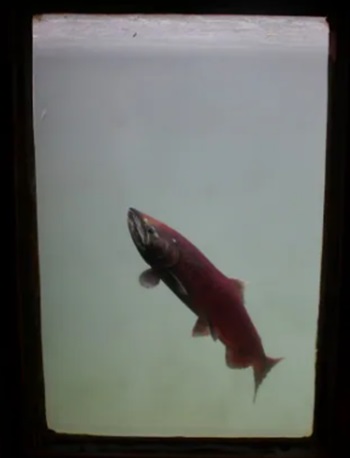 Alaska and Yukon representatives met in Whitehorse last week to discuss the 2023 chinook and fall chum salmon runs on the Yukon River, which once again failed to meet Canadian conservation goals. An estimated 58,529 chinook salmn entered the river last year, according to public presentations by the Alaska Department of Fish and Game, and Fisheries and Oceans Canada (DFO) during the Yukon River Panel’s post-season meeting. It was the second-smallest run on record — 2022 was the smallest — and not enough to meet spawning escapement goals on either side of the border. The goals set out the minimum range of fish that need to make it to their spawning areas to healthily sustain the population. more, >>click to read<< 13:51
Alaska and Yukon representatives met in Whitehorse last week to discuss the 2023 chinook and fall chum salmon runs on the Yukon River, which once again failed to meet Canadian conservation goals. An estimated 58,529 chinook salmn entered the river last year, according to public presentations by the Alaska Department of Fish and Game, and Fisheries and Oceans Canada (DFO) during the Yukon River Panel’s post-season meeting. It was the second-smallest run on record — 2022 was the smallest — and not enough to meet spawning escapement goals on either side of the border. The goals set out the minimum range of fish that need to make it to their spawning areas to healthily sustain the population. more, >>click to read<< 13:51
Rogue wave hits Canadian lobster industry as U.S. moves to increase minimum legal size
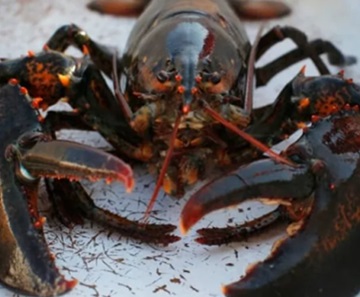 An unexpected decision to increase the minimum legal size of lobster in the United States has appeared like a rogue wave on the Canadian industry, threatening to curtail live exports south of the border. With total Canadian live shipments worth $545 million in 2022, the potential trade implications was the first item on the agenda in the annual U.S.-Canada lobster town meeting being held in Moncton, N.B., this week. “Effectively we will not be able to ship a certain size lobster there that we always have. So their action will create an action that we have to respond to in Canada,” said Geoff Irvine, executive director of the Lobster Council of Canada. The U.S. move to increase the minimum legal size of a lobster carapace, or outer shell, from 82 millimetres to 84 millimetres in January 2025 — and to 86 millimetres in 2027 — would create a mismatch in the closely integrated two-way trading between the countries. photos, more, >>click to read<< 10:22
An unexpected decision to increase the minimum legal size of lobster in the United States has appeared like a rogue wave on the Canadian industry, threatening to curtail live exports south of the border. With total Canadian live shipments worth $545 million in 2022, the potential trade implications was the first item on the agenda in the annual U.S.-Canada lobster town meeting being held in Moncton, N.B., this week. “Effectively we will not be able to ship a certain size lobster there that we always have. So their action will create an action that we have to respond to in Canada,” said Geoff Irvine, executive director of the Lobster Council of Canada. The U.S. move to increase the minimum legal size of a lobster carapace, or outer shell, from 82 millimetres to 84 millimetres in January 2025 — and to 86 millimetres in 2027 — would create a mismatch in the closely integrated two-way trading between the countries. photos, more, >>click to read<< 10:22
Canada pledges to work with U.S. over competing claims to Arctic sea floor
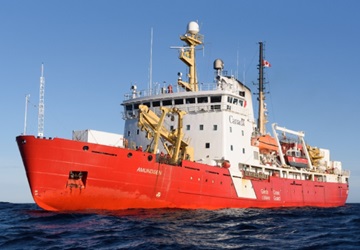 The federal government is pledging to work with its American counterparts after the U.S. claimed parts of the Arctic sea floor that Canada also wants. Grantly Franklin, spokesman for Global Affairs Canada, said in an email that Canada expects to follow the process set out in a United Nations treaty despite the fact the U.S. hasn’t ratified the Convention on the Law of the Sea. “Canada and the U.S. are in frequent communication with regards to the continental shelf in the Arctic and have expressed their commitment along with other Arctic states to the orderly settlement of overlapping claims,” Franklin wrote. more, >>click to read<< 19:43
The federal government is pledging to work with its American counterparts after the U.S. claimed parts of the Arctic sea floor that Canada also wants. Grantly Franklin, spokesman for Global Affairs Canada, said in an email that Canada expects to follow the process set out in a United Nations treaty despite the fact the U.S. hasn’t ratified the Convention on the Law of the Sea. “Canada and the U.S. are in frequent communication with regards to the continental shelf in the Arctic and have expressed their commitment along with other Arctic states to the orderly settlement of overlapping claims,” Franklin wrote. more, >>click to read<< 19:43
Marine Science Vessel Celtic Voyager Sets Sail to Canada
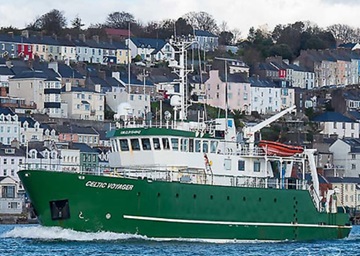 The Marine Institute’s Celtic Voyager, Ireland’s first multi-purpose research vessel, has been sold to Qikiqtaaluk Corporation of Nunavut, Canada. The vessel has played a significant role in advancing marine science and monitoring for the Irish government during its 25-year service life and has completed more than 600 surveys, enabled more than 6,500 science days, and sailed more than 550,000 miles while in service with the Marine Institute. The vessel will continue to be used for fisheries research and seabed mapping in Northern territories and Nunavut in Canada. Qikiqtaaluk Corporation is the Inuit birthright development corporation for the Qikiqtani Region and seeks to strengthen the social and economic well-being of Nunavut and the 15,000+ Inuit it represents. more, >>click to read<< 08:43
The Marine Institute’s Celtic Voyager, Ireland’s first multi-purpose research vessel, has been sold to Qikiqtaaluk Corporation of Nunavut, Canada. The vessel has played a significant role in advancing marine science and monitoring for the Irish government during its 25-year service life and has completed more than 600 surveys, enabled more than 6,500 science days, and sailed more than 550,000 miles while in service with the Marine Institute. The vessel will continue to be used for fisheries research and seabed mapping in Northern territories and Nunavut in Canada. Qikiqtaaluk Corporation is the Inuit birthright development corporation for the Qikiqtani Region and seeks to strengthen the social and economic well-being of Nunavut and the 15,000+ Inuit it represents. more, >>click to read<< 08:43
Seal hunt advocate takes issue with EU president’s claim that Indigenous exemptions are working
 The European Union’s ban on seal products did not feature heavily — if at all — during discussions between Canadian and European leaders on Friday in St. John’s, but one comment made during a news conference has drawn the ire of a group that advocates for seal harvesters. European Commission President Ursula von der Leyen told reporters she believes the exemption for Indigenous sealers is going well. Doug Chiasson, executive director of the Fur Institute of Canada, was taken aback by her comments. The biggest issue, according to Chiasson, is that the 2009 ban destroyed the existing market for seal products in Europe. When the Indigenous exemption was introduced in 2015, he said, there was no longer a market for the products. >>click to read<< 13:52
The European Union’s ban on seal products did not feature heavily — if at all — during discussions between Canadian and European leaders on Friday in St. John’s, but one comment made during a news conference has drawn the ire of a group that advocates for seal harvesters. European Commission President Ursula von der Leyen told reporters she believes the exemption for Indigenous sealers is going well. Doug Chiasson, executive director of the Fur Institute of Canada, was taken aback by her comments. The biggest issue, according to Chiasson, is that the 2009 ban destroyed the existing market for seal products in Europe. When the Indigenous exemption was introduced in 2015, he said, there was no longer a market for the products. >>click to read<< 13:52
Canada, Nova Scotia move to improve fishing vessel safety
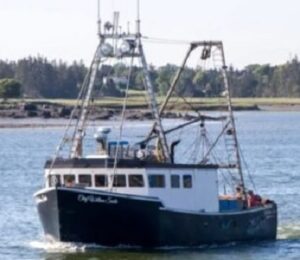 On the eve of the most lucrative fishery in Canada, federal and provincial authorities are ramping up fishing vessel inspections in Nova Scotia seeking proof of safety procedures and annual inspections of hoists and other lifting devices. Lobster season in southwest Nova Scotia opens in two weeks. Some of the increased scrutiny is being attributed to the sinking of the Chief William Saulis, a scallop dragger that went down in heavy seas near Digby in December 2020. All six men on board died. Transport Canada has served notice that its marine inspectors want to see written safety procedures on board and proof crew members are familiar with them. “Failure will result in a deficiency notice or detention of the vessel,” says spokesperson Sau Sau Liu. Video,>>click to read<< 07:08
On the eve of the most lucrative fishery in Canada, federal and provincial authorities are ramping up fishing vessel inspections in Nova Scotia seeking proof of safety procedures and annual inspections of hoists and other lifting devices. Lobster season in southwest Nova Scotia opens in two weeks. Some of the increased scrutiny is being attributed to the sinking of the Chief William Saulis, a scallop dragger that went down in heavy seas near Digby in December 2020. All six men on board died. Transport Canada has served notice that its marine inspectors want to see written safety procedures on board and proof crew members are familiar with them. “Failure will result in a deficiency notice or detention of the vessel,” says spokesperson Sau Sau Liu. Video,>>click to read<< 07:08
Atlantic Enterprise: Large Shrimp and Halibut Factory Trawler for Ocean Prawns Canada Operations
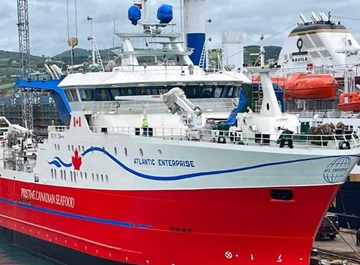 Clearwater Ocean Prawns Venture (COPV), a joint venture formed by Danish fishing company Ocean Prawns and Canada’s Clearwater Seafoods, has expanded its fleet with the recent acquisition of a new deep-sea-capable factory trawler designed by Norwegian naval architecture firm Skipsteknisk. The DNV-classed, Polar Coded trawler Atlantic Enterprise measures 83.2 by 18 metres and is equipped primarily for catching and processing shrimp and Greenland halibut in Arctic waters. The freezer hold has a total capacity of 3,000 cubic metres across two decks and includes space for pallets. Ocean Prawns said the vessel will be capable of landing around 1,200 tonnes of pre-packaged, sea-frozen coldwater prawns each trip and around 2,500 tonnes of halibut per year. Photos, >>click to read<< o7:06
Clearwater Ocean Prawns Venture (COPV), a joint venture formed by Danish fishing company Ocean Prawns and Canada’s Clearwater Seafoods, has expanded its fleet with the recent acquisition of a new deep-sea-capable factory trawler designed by Norwegian naval architecture firm Skipsteknisk. The DNV-classed, Polar Coded trawler Atlantic Enterprise measures 83.2 by 18 metres and is equipped primarily for catching and processing shrimp and Greenland halibut in Arctic waters. The freezer hold has a total capacity of 3,000 cubic metres across two decks and includes space for pallets. Ocean Prawns said the vessel will be capable of landing around 1,200 tonnes of pre-packaged, sea-frozen coldwater prawns each trip and around 2,500 tonnes of halibut per year. Photos, >>click to read<< o7:06
Fisheries and Oceans Canada doing a poor job of monitoring fishing industry: report
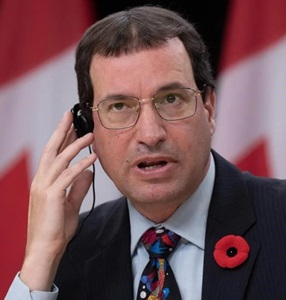 A new report slams the federal Fisheries Department for failing to properly monitor Canada’s commercial fishing industry. The report from the federal environment commissioner, Jerry DeMarco, says Fisheries and Oceans Canada lacks the ability to collect timely and dependable data about what is being caught. DeMarco says the dearth of reliable data means the department can’t protect Canada’s fish stocks from overfishing. The report from the federal environment commissioner, Jerry DeMarco, says Fisheries and Oceans Canada lacks the ability to collect timely and dependable data about what is being caught.>>click to read<< 13:02
A new report slams the federal Fisheries Department for failing to properly monitor Canada’s commercial fishing industry. The report from the federal environment commissioner, Jerry DeMarco, says Fisheries and Oceans Canada lacks the ability to collect timely and dependable data about what is being caught. DeMarco says the dearth of reliable data means the department can’t protect Canada’s fish stocks from overfishing. The report from the federal environment commissioner, Jerry DeMarco, says Fisheries and Oceans Canada lacks the ability to collect timely and dependable data about what is being caught.>>click to read<< 13:02
Canada’s largest fishing vessel will be ready for 2024, says Baffin Fisheries CEO
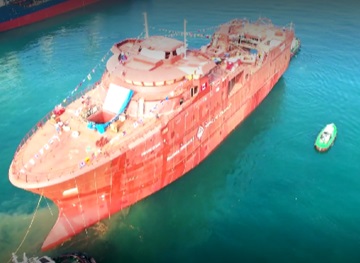 A ship being described as Canada’s largest fishing vessel — one that will soon make regular ports of call in Newfoundland harbours like St. Anthony, Harbour Grace and Bay Roberts was launched this week from a yard in Turkey, and the Nunavut-based owners say it’s on track to be harvesting turbot and shrimp from Arctic waters by next year. The vessel will also bear a name that’s quite familiar to ship-spotters in Newfoundland and Labrador: Inuksuk II. Baffin Fisheries currently operates a fleet of three fishing vessels, including the MV Inuksuk I. The vessel is 80 metres long, 18 metres wide, and will be capable of carrying up to 1,300 tonnes of frozen-at-sea turbot or 930 tonnes of shrimp. In comparison, the Inuksuk II is six metres longer than the Calvert, the newest vessel in Ocean Choice International’s fleet. >>click to read<< 14:30
A ship being described as Canada’s largest fishing vessel — one that will soon make regular ports of call in Newfoundland harbours like St. Anthony, Harbour Grace and Bay Roberts was launched this week from a yard in Turkey, and the Nunavut-based owners say it’s on track to be harvesting turbot and shrimp from Arctic waters by next year. The vessel will also bear a name that’s quite familiar to ship-spotters in Newfoundland and Labrador: Inuksuk II. Baffin Fisheries currently operates a fleet of three fishing vessels, including the MV Inuksuk I. The vessel is 80 metres long, 18 metres wide, and will be capable of carrying up to 1,300 tonnes of frozen-at-sea turbot or 930 tonnes of shrimp. In comparison, the Inuksuk II is six metres longer than the Calvert, the newest vessel in Ocean Choice International’s fleet. >>click to read<< 14:30






